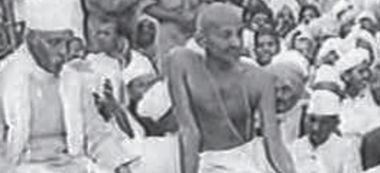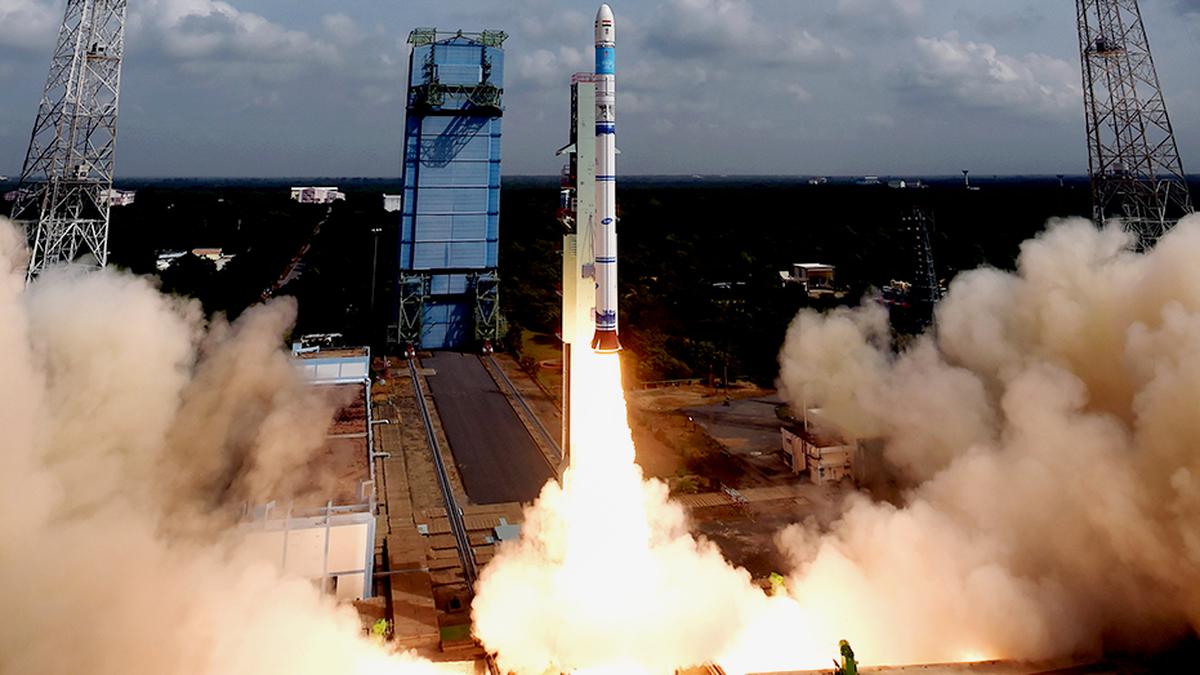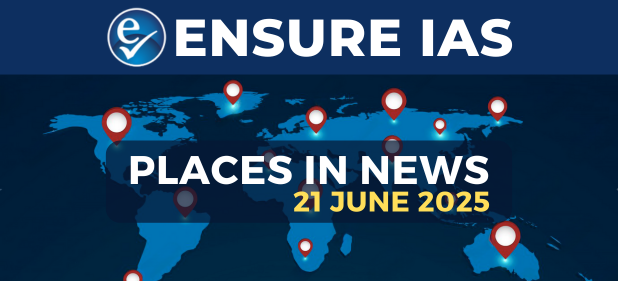- Courses
- GS Full Course 1 Year
- GS Full Course 2 Year
- GS Full Course 3 Year
- GS Full Course Till Selection
- Answer Alpha: Mains 2025 Mentorship
- MEP (Mains Enrichment Programme) Data, Facts
- Essay Target – 150+ Marks
- Online Program
- GS Recorded Course
- Polity
- Geography
- Economy
- Ancient, Medieval and Art & Culture AMAC
- Modern India, Post Independence & World History
- Environment
- Governance
- Science & Technology
- International Relations and Internal Security
- Disaster Management
- Ethics
- NCERT Current Affairs
- Indian Society and Social Issue
- NCERT- Science and Technology
- NCERT - Geography
- NCERT - Ancient History
- NCERT- World History
- NCERT Modern History
- CSAT
- 5 LAYERED ARJUNA Mentorship
- Public Administration Optional
- ABOUT US
- OUR TOPPERS
- TEST SERIES
- FREE STUDY MATERIAL
- VIDEOS
- CONTACT US
Congress’s 2024 Belagavi Session A Look Back at Gandhi's 1924 Leadership
Congress’s 2024 Belagavi Session A Look Back at Gandhi's 1924 Leadership
26-12-2024

- The Indian National Congress (INC) is holding a special event in Belagavi (formerly Belgaum), Karnataka on December 26-27, 2024, to mark 100 years since Mahatma Gandhi presided over a key Congress session in 1924.
- This event is important not only for remembering Gandhi's leadership but also for planning the Congress party’s future direction.
What Was the 1924 Congress Session About?
-
Context:
- Mahatma Gandhi had just been released from prison in February 1924 after a surgery. He was concerned about the lack of unity between Hindus and Muslims and internal problems within the Congress.
- Gandhi undertook a 21-day fast (from September 18 to October 8, 1924) to encourage unity and address the divide.
-
Main Issues Addressed by Gandhi:
- Hindu-Muslim Unity: Gandhi believed unity between Hindus and Muslims was essential for the country’s progress.
- Fighting Internal Division: Gandhi wanted to stop the infighting within Congress.
- Non-Violence and Self-Rule: He promoted non-violence and self-rule (swaraj) as the keys to India’s freedom.
Why Is the 1924 Session So Important?
-
First Time Gandhi Led Congress:
- Gandhi presided over the Congress Working Committee (CWC) for the first time in 1924. This was the only time he was the Congress president.
-
Gandhi’s Key Ideas:
- Gandhi explained his non-violence philosophy, emphasizing that non-violent actions are more powerful than violence.
- He also talked about the importance of unity and removing untouchability to achieve swaraj (self-rule).
- He suggested that the court of appeals be moved from London to Delhi, and the language of government should be Hindustani.
- Gandhi also encouraged people to spinning and weaving khadi as part of their contribution to the freedom struggle.
-
Impact on the Freedom Struggle:
- Gandhi’s focus on khadi helped spread it across the country, especially in villages.
- The session led to greater participation of peasants in Congress activities, strengthening their role in the freedom movement.
What Will Happen in the 2024 Belagavi Session?
-
Revisiting Gandhi’s Ideals:
- Congress will revisit Gandhi’s values like unity, non-violence, and self-rule to help revive the party.
- This event will remind people of the Congress’s role in the freedom struggle and its responsibility to carry forward Gandhi's legacy.
-
Activities Planned:
- The session will start at Veera Soudha, the same place where the 1924 session was held.
- A statue of Mahatma Gandhi will be unveiled at the Suvarna Vidhana Soudha (Karnataka’s state assembly).
- Rally: A rally called "Jai Bhim, Jai Samvidhan" will be held, where leaders like Mallikarjun Kharge, Rahul Gandhi, Siddaramaiah (Karnataka CM), and D K Shivakumar (State Congress President) will speak.
What Did Gandhi Talk About in 1924, and Why Does It Matter Today?
-
Non-Violence and Satyagraha:
- Gandhi’s belief in non-violence and satyagraha (truth force) was central to his message. He said non-violent actions are more powerful than violent ones.
- These ideas can inspire Congress today to continue fighting for justice through peaceful means.
-
Hindu-Muslim Unity:
- Gandhi’s emphasis on unity between Hindus and Muslims remains relevant today, as communal tensions are still a major issue in India.
-
Removing Untouchability:
- Gandhi’s fight against untouchability resonates with Congress’s ongoing focus on Dalit rights and the empowerment of oppressed groups.
Indian National Congress: History of Past Presidents (1885–2017)
Early Years & Founding (1885–1900)
- 1885, 1892: W.C. Bonnerjee - First President, also President of Allahabad session in 1892.
- 1886, 1893: Dadabhai Naoroji - Led the Calcutta session in 1886 and Lahore session in 1893. Known as the "Grand Old Man of India."
- 1887: Badruddin Tyabji - First Muslim President, Madras conference.
- 1888: George Yule - First British President, Allahabad session.
- 1889, 1910: William Wedderburn - President in 1889 (Bombay) and 1910 (Allahabad).
- 1890: Pherozeshah Mehta - Calcutta session.
- 1891: Anandacharlu - Nagpur session.
- 1894: Alfred Webb - Madras conference.
Early 20th Century & Rise of Nationalism (1900–1947)
- 1895, 1902: Surendranath Banerjee - Poona session in 1895 and Ahmedabad conference in 1902.
- 1896: Rahimtulla M Sayani - Calcutta session, second Muslim president.
- 1900: Sir Narayan Ganesh Chandavarkar - Lahore session.
- 1901: Dinshaw Edulji Wacha - Calcutta session.
- 1905: Gopal Krishna Gokhale - Benares conference; leader of the moderate group.
- 1907, 1908: Rashbihari Ghosh - Surat (1907) and Madras (1908) sessions.
- 1911: Bishan Narayan Dar - Calcutta session.
- 1913: Nawab Syed Muhammad Bahadur - Karachi session.
- 1917: Annie Besant - First female president, Calcutta session.
- 1919: Motilal Nehru - Amritsar session; pivotal in the debate on dominion status vs. complete independence.
Post-Independence Leaders (1947–1991)
- 1947: J.B. Kripalani - Meerut session during independence transition.
- 1948–1949: Pattabhi Sitaramayya - Jaipur conference.
- 1955-1959: U. N. Dhebar - Oversaw multiple sessions.
- 1959, 1978-1984: Indira Gandhi - First became president in 1959 and again after the 1978 split; became one of the most powerful and controversial leaders of India.
- 1964-1967: K. Kamaraj - Regarded as a kingmaker, pivotal in the rise of Lal Bahadur Shastri.
- 1969: S. Nijalingappa - A key leader during the party split.
- 1971: Jagjivan Ram - Champion of social justice and leader of backward classes.
- 1985-1991: Rajiv Gandhi - Youngest Prime Minister, faced challenges like the Bhopal Gas Tragedy and Bofors scandal.
1990s to 2017: Modern Congress
- 1992-1996: P. V. Narsimha Rao - Led Congress during liberalization and economic reforms.
- 1996-1998: Sitaram Kesri - Presided during a turbulent phase with internal party strife.
- 1998-2017: Sonia Gandhi - The longest-serving president, leading the party to two general election victories (2004, 2009). She also faced defeat against the BJP and a difficult period after her husband’s assassination.
|
Also Read |
|




